Avoiding Common Problems with Bolts
Bolts are commonly used in construction, machinery, and many other applications where two objects need to be securely fastened together. During and subsequent to this fastening process, there are a number of issues that can arise.
In this brief article, we take a look at common problems experienced when using bolts, and the measures that can be taken to avoid them. This article is brought to you by Bolt-In Co Sunshine Coast - if you have any further questions or queries about the right bolts for your project, please contact our team. We are here to assist.
Common Problems with Bolts
The list of common problems that can be experienced when working with fasteners is fairly extensive. Follow the links below to learn more about specific issues, or read on below.
- Using the wrong type of fastener
- Poor Quality Fasteners
- How to Prevent Bolts From Loosening
- Overtightening
- Corrosion
- Bolt Fatigue
- Stripped Threads
- Misalignment
- Improper Installation
Avoiding Common Problems with Bolts
Following are a brief description of options to avoid common problems experienced with the issues mentioned above:
Using the Wrong Fastener

Working with mismatched fasteners is a sure-fire way to discover a wide range of issues. Fasteners often work in pairs - for example, a bolt goes with a nut. It's important to use the correct matching mate for any component. When a mismatched fastener is utilised, diverse problems can occur such as stripped threads, poor connections, reduced strength, misalignment, imbalance, corrosion, and safety hazards. The 'quick win' in using a mismatched fastener may result in many extended and painful future losses.
Poor Quality Fasteners

Bolt-In Co Sunshine Coast only stocks high-quality fasteners from quality suppliers, because we want our customers to know they are working towards a quality result using quality products. Unfortunately, not all fasteners are created equally. There are many poor quality products available on the market and the outcomes are going to be disappointing. Don't fall into the trap of purchasing cheap or poor quality fasteners! The pitfalls are many, and include bolt thread defects, bolt head defects, unsuitable materials, inappropriate strengths. The list goes on. Make sure you use a quality product, and you will be on the way to getting a good result. Talk to our team to learn more.
How to Prevent Bolts From Loosening
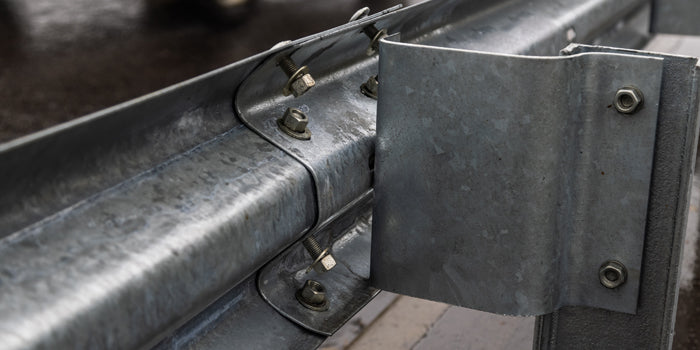
Bolts can loosen over time due to vibration, thermal expansion and contraction, and other factors. This can result in decreased holding strength and potentially cause the objects being joined to separate. Here are a few ways to prevent bolts from loosening:
Proper tightening
Make sure that bolts are tightened to the correct torque specification, using a torque wrench if necessary. Over-tightening or under-tightening can cause bolts to loosen.
Locking mechanisms
Use locking mechanisms, such as lock washers, locknuts, or thread-locking adhesives. This will help prevent bolts from loosening.
Regular inspection
Regularly inspect bolts for signs of looseness or other problems. If a bolt is found to be loose, tighten it to the correct torque specification as soon as possible.
Adequate clearance
Ensure that there is adequate clearance between the bolt head and the surrounding surfaces, as well as between the nut and the surrounding surfaces. This will help to minimise the impact of vibration and thermal expansion and contraction.
Vibration-damping materials
Use vibration-damping materials, such as rubber washers, to help absorb and reduce the impact of vibration on bolts.
Preload
Apply a preload to the bolts, which is a small amount of tension that is applied to the bolts prior to final tightening. This can help to reduce the effects of vibration and thermal expansion and contraction.
Overtightening
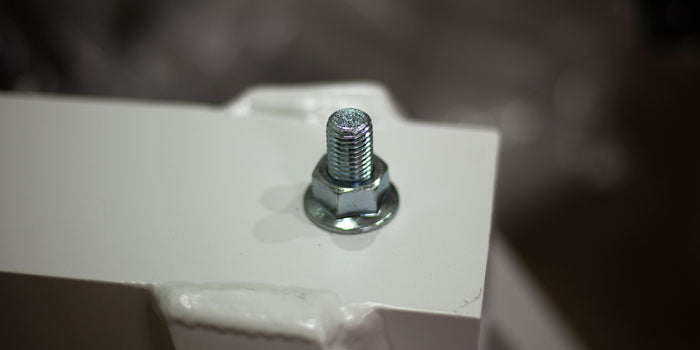
Overtightening refers to a situation when the fastener is excessively tightened. The problems encountered due to overtightening are many. Here are a few examples of common over tightening issues:
Stripped Threads
There is a section on this below. If fasteners are overtightened, their threads can be damaged and they will lose their ability to function properly.
Deformity or Fracture
Overtightening can damage bolts, causing them to deform or fracture.
Damaged Components
In addition to damage to fasteners, overtightening can also damage the fastened components, but putting to much stress on them.
Difficult to Disassemble
Overtightened bolts may lock, making them difficult or impossible to disassemble.
Corrosion
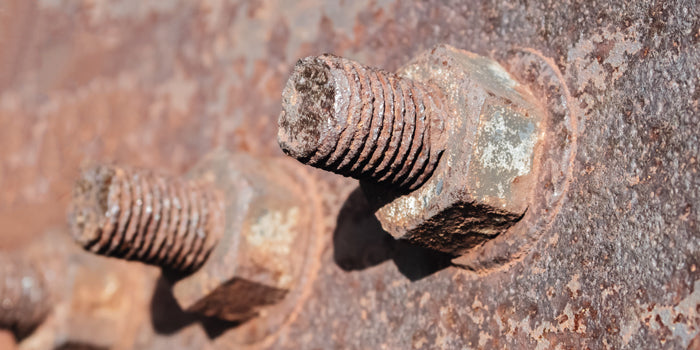
Corrosion can weaken bolts and cause them to fail, so it is important to take steps to prevent it. This is an especially significant consideration on the Sunshine Coast, which, like any coastal environment, is harsh for steels due to salt spray, humidity, temperature fluctuations, and solar radiation. These conspire to create an environment conducive to corrosion in certain types of steel.
Here are a few ways to prevent corrosion on bolts:
Material Selection
Use corrosion-resistant materials, such as stainless steel 316 or other specialty alloys, when selecting bolts for your application. Bolt-In Co has a wide range of SS316 hardware, so don't hesitate to get in touch if your project is near the coast!
Surface Protection
Utilise a surface protection, such as a zinc plating or anodising, to help prevent corrosion.
Lubrication
Use a corrosion-resistant lubricant on the threads of the bolts to reduce friction and prevent corrosion.
Sealing
Seal the bolts to prevent moisture and other corrosive agents from reaching the metal. This can be done using a sealant, a gasket, or a protective coating.
Regular inspection
Regularly inspect the bolts for signs of corrosion and take appropriate action if any is found.
Environmental control
Control the environment in which the bolts are used to minimise exposure to corrosive agents. This can be done by using protective covers, keeping the area dry, and avoiding exposure to corrosive chemicals. Common sense is always useful when working with bolts!
Bolt Fatigue
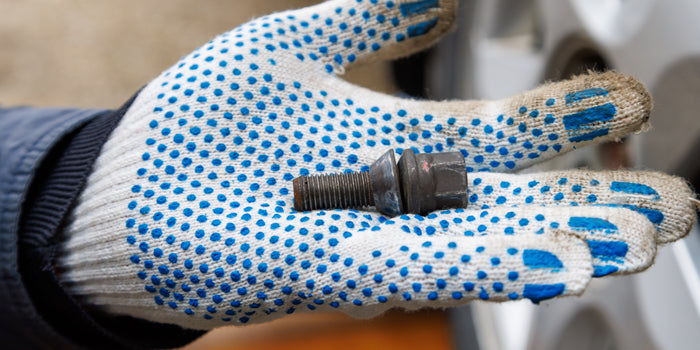
Bolts that are subjected to repeated loading can experience fatigue and eventually fail. This is a common problem in applications where the bolts are exposed to high stress and frequent cycling (frequent tightening and loosening of bolts). To avoid bolt fatigue, it's important to follow these steps:
Choose the Right Bolt
Select a bolt that is suitable for the application and has the proper strength, size, and material for the job.
Specify the Right Preload
Preloading a bolt helps to maintain the integrity of the joint and prevent loosening. However, over-preloading a bolt can cause unnecessary stress and increase the risk of fatigue failure.
Control the Stress Cycle
Fatigue failure is most likely to occur when the stress cycle is repetitive, so it's important to minimise the number of cycles by reducing the load on the bolt or changing the design of the joint.
Use Fatigue-Resistant Materials
Some materials, such as stainless steel and titanium, are more resistant to fatigue than others. Using these materials in critical applications can help to reduce the risk of fatigue failure.
Inspect Regularly
Regular inspections of bolts and joints can help to identify any signs of fatigue failure before it becomes a problem.
Replace Worn or Damaged Bolts
If a bolt shows signs of wear or damage, it should be replaced immediately to avoid the risk of fatigue failure.
Stripped Threads
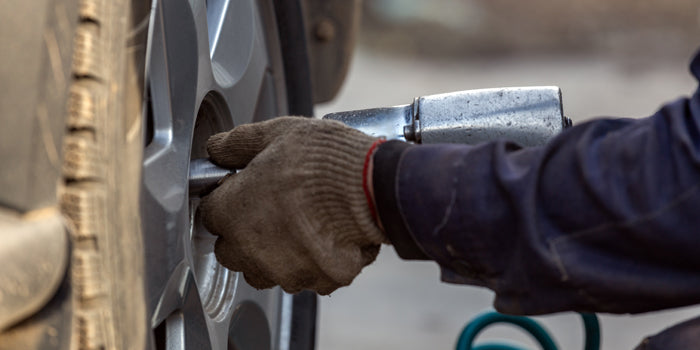
Stripped threads on bolts can result in decreased holding strength and make it difficult to secure the bolt with a nut. Here are a few ways to prevent stripped threads on bolts:
Material selection
Use high-strength materials, such as stainless steel or other specialty alloys, when selecting bolts for your application.
Proper installation
Ensure that the bolts are installed correctly and tightened to the correct torque specification. Over-tightening or cross-threading can cause stripped threads.
Thread-Locking Adhesives
Use a thread-locking adhesive on the threads of the bolts to help prevent stripped threads and ensure a secure connection.
Thread lubrication
Use a lubricant, such as thread lubricant or grease, on the threads to reduce friction and prevent stripped threads.
Tap the threads
Before installing the bolt, tap the threads on the hole to remove any debris or burrs that could cause stripped threads.
Chamfer the threads
Chamfer the end of the bolt and the threads to help the bolt start easier and reduce the risk of stripped threads.
How To Prevent Bolt Misalignment
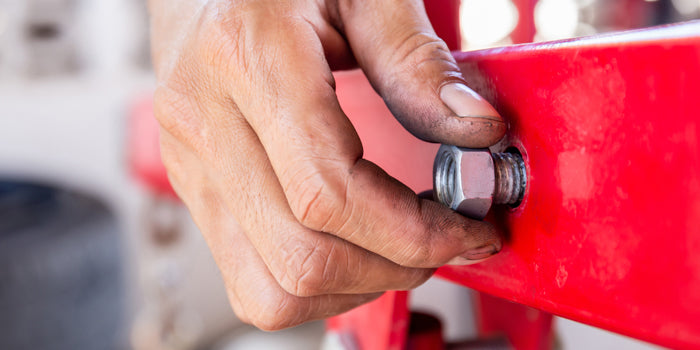
If the objects being joined are not properly aligned, the bolts can experience increased stress and may fail more quickly. Bolt misalignment can result in decreased holding strength, difficulty in tightening the bolt, and increased stress on the bolt and the surrounding components. Here are a few ways to prevent bolt misalignment:
Proper installation
Ensure that the bolt holes are properly aligned and that the bolts are inserted straight into the holes.
Clamping
Use clamping devices, such as clamps or jigs, to hold the components in place and prevent misalignment during installation.
Shimming
Use shims between the components to help ensure proper alignment and prevent misalignment.
Chamfered holes
Use chamfered holes to help guide the bolt into the correct position and prevent misalignment. This involves cutting a beveled edge on the inside of the hole to help guide the bolt into place and prevent misalignment. Here is the process of chamfering a hole:
Tolerance control
Control the tolerances of the components to minimise the potential for misalignment.
Inspection
Regularly inspect the bolts and the components to ensure that they are aligned correctly.
Improper Installation

In other words, all of the above. There are many different ways to get it wrong with fasteners. Experience is a big factor. If you're not sure what you're doing, it's best to find someone who is to help.
In Conclusion
In conclusion, the issues we have discussed in this article (loosening, corrosion, fatigue, misalignment & improper installation) - are all very common and anyone who has worked with bolts for any duration of time will have experienced some or all of them. Hopefully, not too often! Striving to avoid them is essential to ensure secure and long-lasting integrity for your bolted solution. If you'd like to learn more about bolts, or access high-quality bolts suitable for your application, contact Bolt-In Co Sunshine Coast. We are here to assist.




